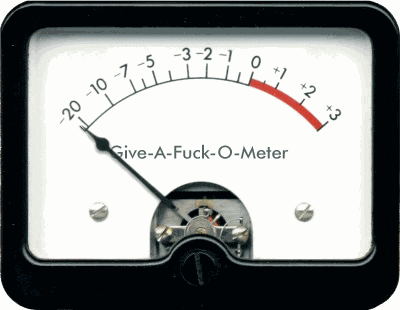Tetracide
The Truth Is Not For All
In this thread, I wish to speak directly to my fellow atheists on this board to better equip them in the discussions that occur here.
I want to impart with you the following ideas that you must keep in mind in every discussion you have with a theist.
We are not responsible for defending our position. It is the theist who invents a mystical creature called god, endows it with absurd characteristics, establishes a culture and following around it, and decrees we adhere to the subjective teachings assigned to it. Our rejection of this is not a positive claim, it is a negative one. The burden of proof resides with the theist, and he alone.
There are however, different degrees of atheism. Positive Atheism, and Negative Atheism.
Positive atheists (atheists that not only reject theism, but accept god cannot exist), do make a claim, and must substantiate it accordingly. They may do so in a variety of ways, one of which is encapsulated by George H. Smith:
Negative atheists, may sit back and relax. They may spend their time explaining to the theist why their claims of God's existence are insufficient. The theist may say, "God transcends human understanding; he is unknowable," to which I'm sure you can reduce to absurdity with relative ease.
Never allow the theist to bog you down with scripture or any other evidence within the realm of theism. It rests on a faulty premise that you may not stand upon.
I am open to other atheists' questions and enjoy assisting my fellow free thinkers in their quests on this board.
Good posting.
I want to impart with you the following ideas that you must keep in mind in every discussion you have with a theist.
We are not responsible for defending our position. It is the theist who invents a mystical creature called god, endows it with absurd characteristics, establishes a culture and following around it, and decrees we adhere to the subjective teachings assigned to it. Our rejection of this is not a positive claim, it is a negative one. The burden of proof resides with the theist, and he alone.
There are however, different degrees of atheism. Positive Atheism, and Negative Atheism.
Positive atheists (atheists that not only reject theism, but accept god cannot exist), do make a claim, and must substantiate it accordingly. They may do so in a variety of ways, one of which is encapsulated by George H. Smith:
George H. Smith said:To be is to be something as opposed to nothing, and to be something is to be something specific. If a god is to have any characteristics (which it must to exist), these characteristics must be specificbut to assign definite attributes, to say that a being is this as opposed to that, is to limit the capacities of that being and to subject it to the uniformity imposed by those capacities.
A supernatural being, if it is to differ in kind from natural existence, must exist without a limited naturewhich amounts to existing without any nature at all. If we are to talk intelligibly about a god, we must presuppose that this god has characteristics by which it can be identified. But once the idea of supernatural existence is introduced, an existence apart from the limitations of natural law, we exclude the possibility of assigning any definite characteristics to a godbecause by so doing we bring our god within the realm of limitations and hence within the realm of natural law.
Negative atheists, may sit back and relax. They may spend their time explaining to the theist why their claims of God's existence are insufficient. The theist may say, "God transcends human understanding; he is unknowable," to which I'm sure you can reduce to absurdity with relative ease.
Never allow the theist to bog you down with scripture or any other evidence within the realm of theism. It rests on a faulty premise that you may not stand upon.
I am open to other atheists' questions and enjoy assisting my fellow free thinkers in their quests on this board.
Good posting.



